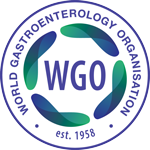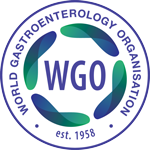Coconut water for ulcerative colitis: A (low-cost) biological of a different kind
Review by Prof. Vishal Sharma (India)
Study Summary
In this randomized trial done in India, patients with mild to moderate ulcerative colitis were randomized to receive either standard medical care with 400 ml of coconut water daily or placebo drink for eight weeks. Ninety seven patients on stable dose of 5-aminosalicylates and thiopurines, from a single center, were randomized to receive either the study intervention (400 ml of micro-processed preservative-free coconut water) or placebo (coconut flavored water with essence and preservative). The intervention was continued daily for eight weeks and patients followed up every two weeks. The primary outcome was clinical remission (simple clinical colitis activity index of 2 or less) and other outcomes were clinical response, and adverse outcomes. Adherence to intervention was better in the coconut water arm (possibly a proxy for clinical efficacy). Clinical remission rates (53.1% versus 28.3%) and clinical response rates (57.1% versus 38.3%) were higher in the coconut water arm. Biological remission (fecal calprotectin < 150 mcg/g) was higher also in the coconut water arm. However, there were no differences in the endoscopic response and remission rates between the two groups.
Commentary
The hypothesis of the authors that use of coconut water will improve bowel inflammation through a multimodal action- anti-inflammatory, antimicrobial action impacting the gut microbiome and higher dietary potassium intake. In ancient Hindu mythology, coconut is considered a kalpvriksha - a tree that fulfills all wishes. At least in this trial, the hypothesis of the authors was fulfilled. The paradigm of treatment of flares of inflammatory bowel disease or of refractory disease has shifted to an increased use of advanced therapies including biologics and small molecules. These therapies, apart from a therapeutic ceiling, are associated with increased costs and risk of adverse effects. Newer therapies, which are effective and less costly are needed. Microbiome modulation, through diet and fecal transplants, are emerging approaches to tackle inflammation in ulcerative colitis. The present trial adds another option in these microbiome-modulating therapies. However, there are some unanswered questions - was the difference actually due to the intervention or due to pro-inflammatory action of preservatives or components of “coconut essence” in placebo. Further, it is unclear if the lack of endoscopic efficacy is due to a short period of intervention or points to a lack of efficacy - longer trials may perhaps answer this in future. Also, the actual mechanism of action remains uncertain although there were differences in microbiota possibly related to the intervention that may explain the clinical impact. Nevertheless, this interesting RCT makes ground for the use of coconut water in patients with mild to moderate ulcerative colitis- and may be used as one strategy to avoid use of costly therapies.

